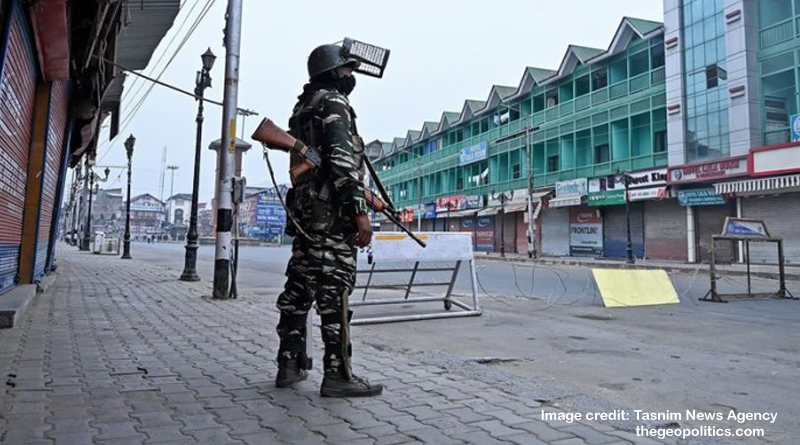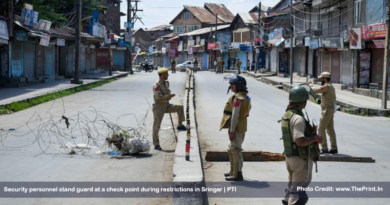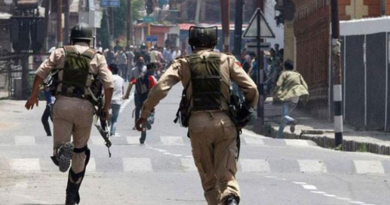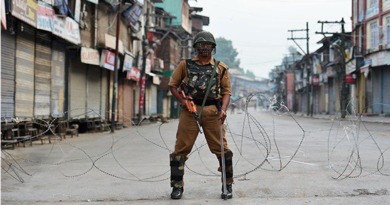The Simla Agreement: Is It Still Relevant Today?
Almost eight months after annexing Jammu and Kashmir, the Indian government issued “Jammu and Kashmir Reorganisation Order 2020,” leading to state-sponsored demographic change. The new law would enable non Kashmiris to permanently reside and buy land in Kashmir if they have lived there for at least 15 years. The move is seen as Bharatiya Janata Party’s strategy to turn a majority-Muslim region into a Hindu-majority one. Prior to this, article 35A of the Indian constitution barred outsiders to permanently reside or buy property in Kashmir. The introduction of new law would further inflame tensions in the region and infuriate Pakistan which has already denounced Delhi’s action as illegal and inconsistent with its international and bilateral agreements.
Kashmir has remained the subject of a long-running dispute between Pakistan and India, the roots of which can be traced to their shared colonial past. Pakistan desires a solution and wants global powers to play a role in resolving the Kashmir issue. While India has long bristled at any suggestion of third-party involvement over Kashmir insisting it is an “integral part” of the country. Where India finds it difficult to escape Kashmir’s reference by simply terming it an “integral part,” it takes another approach by describing it a “bilateral issue” between Pakistan and India as set out in the 1972 Simla agreement.
For the first time in nearly 50 years, when the UN Security Council held an emergency session on Kashmir after Modi’s government Aug 5th decision, India avoided to refer Kashmir as an integral part at that forum and instead suggested that any resolution lies in bilateral discussion as agreed in the Simla agreement. US President Donald Trump has also floated his mediation offer several times but the Indian government has refused to accept any such proposal by recalling the Simla Agreement. However, when Pakistan demands bilateral negotiations with India over Kashmir, India insists it is an “integral part” of the country and any talks with Pakistan would only focus on battling cross-border terrorism and not the contested status of Kashmir.
Since India has repeatedly emphasised on the importance of Simla Agreement in resolving its matters with Pakistan, it is vital to look through the terms laid down in this agreement.
India continues to base its argument by referring to a provision of the Simla Agreement which states;
the two countries are resolved to settle their differences by peaceful means through bilateral negotiations or by any other peaceful means mutually agreed upon between them.
India has repeatedly emphasised on this part of the agreement that calls for bilateral discussion, however, it has dishonored other part of the agreement that bar either parties to unilaterally alter any situation with regards to the problems existing between them. The agreement also clearly states,
Pending the final settlement of any of the problems between the two countries, neither side shall unilaterally alter the situation and both shall prevent the organization, assistance or encouragement of any acts detrimental to the maintenance of peaceful and harmonious relations.
The final part of the agreement calls for “a final settlement of Jammu and Kashmir”. The Agreement clearly suggests that neither Pakistan nor India could unilaterally change the status quo with reference to any of their problems including Kashmir until such issues have been resolved. In August 2019, India breached major provisions of the agreement after it unilaterally altered the status of disputed Kashmir by subsuming its territories within its own. Under the Simla Agreement, neither Pakistan nor India can unilaterally annex any territory of Kashmir as its legal status remains in question and the final settlement is yet to be reached between the two countries.
The agreements must be performed by those party to it and international law had clearly set forth the rules and procedures for enforcing treaties. However, a breach of a treaty by one of the party may allow other to terminate it, bringing both parties, as far as possible, back to the position in which they were before they entered into a treaty, thus causing a reversion to the status quo ante (the state of affairs that existed previously).
In Kashmir’s situation, India has been exploiting the Simla Agreement, especially when it faces any international calls for mediation. But of more concern for Pakistan is that many countries have now started viewing Kashmir issue as a “bilateral problem” between the two South Asian neighbours. Last year, when Pakistan approached Russia for garnering support over Kashmir at the UN Security Council, it was told to use bilateral mechanism to resolve issues with India. Similarly, Britain’s opposition Labour Party after facing pressure from voters of Indian descent in the last election shifted its stance over Kashmir calling it a bilateral matter between Pakistan and India. In December 2019, the Security Council postponed a special closed-door meeting on Kashmir after France stated; “Kashmir issue has to be treated bilaterally (between India and Pakistan)”.
Owing to India’s contradictory approach, there is little chance that bilateral dialogue would result in a resolution. Hence a solution is unlikely without global pressure and Pakistan must work to ensure that important global players do not view Kashmir as merely a bilateral issue. After all the two nuclear armed nations in such a belligerent disposition should remain a worry for the world powers and they must intervene before the threat of a war becomes real.
The views and opinions expressed in this article are those of the author.
Published on 10-April-2020
Muhammad Abdul Qadeer
The writer is a Research Fellow at the Strategic Studies Institute Islamabad (SSII)
Courtney:
https://thegeopolitics.com/the-simla-agreement-is-it-still-relevant-today/




